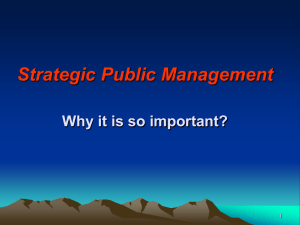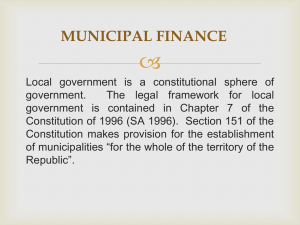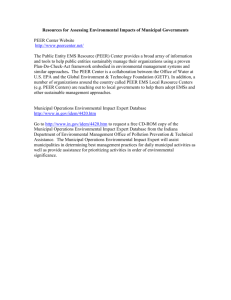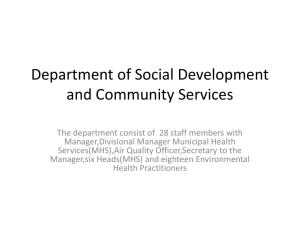Project Completion Assessment March 20, 2012
advertisement
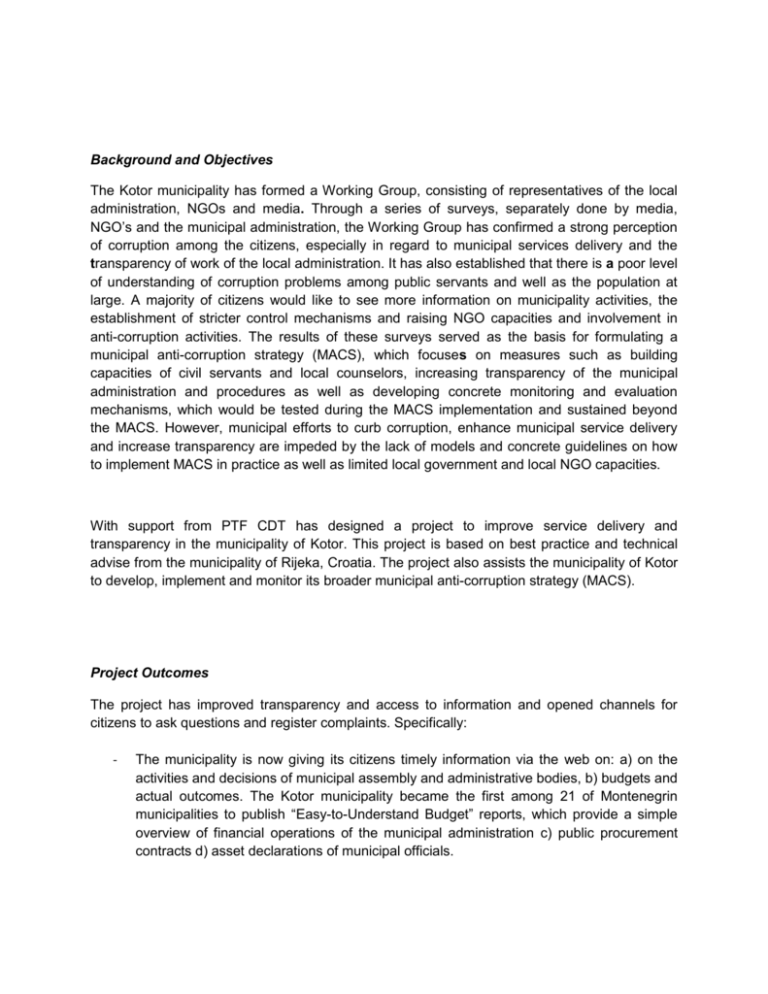
Background and Objectives The Kotor municipality has formed a Working Group, consisting of representatives of the local administration, NGOs and media. Through a series of surveys, separately done by media, NGO’s and the municipal administration, the Working Group has confirmed a strong perception of corruption among the citizens, especially in regard to municipal services delivery and the transparency of work of the local administration. It has also established that there is a poor level of understanding of corruption problems among public servants and well as the population at large. A majority of citizens would like to see more information on municipality activities, the establishment of stricter control mechanisms and raising NGO capacities and involvement in anti-corruption activities. The results of these surveys served as the basis for formulating a municipal anti-corruption strategy (MACS), which focuses on measures such as building capacities of civil servants and local counselors, increasing transparency of the municipal administration and procedures as well as developing concrete monitoring and evaluation mechanisms, which would be tested during the MACS implementation and sustained beyond the MACS. However, municipal efforts to curb corruption, enhance municipal service delivery and increase transparency are impeded by the lack of models and concrete guidelines on how to implement MACS in practice as well as limited local government and local NGO capacities. With support from PTF CDT has designed a project to improve service delivery and transparency in the municipality of Kotor. This project is based on best practice and technical advise from the municipality of Rijeka, Croatia. The project also assists the municipality of Kotor to develop, implement and monitor its broader municipal anti-corruption strategy (MACS). Project Outcomes The project has improved transparency and access to information and opened channels for citizens to ask questions and register complaints. Specifically: - The municipality is now giving its citizens timely information via the web on: a) on the activities and decisions of municipal assembly and administrative bodies, b) budgets and actual outcomes. The Kotor municipality became the first among 21 of Montenegrin municipalities to publish “Easy-to-Understand Budget” reports, which provide a simple overview of financial operations of the municipal administration c) public procurement contracts d) asset declarations of municipal officials. - - - Mechanisms for submission of citizens’ inquiries and complaints are now in place and are increasingly used. An official has been appointed to receive and respond to citizen’s inquiries. The project and CDT have trained selected Kotor municipal staff in becoming aware of and dealing with transparency challenges notably handling corruption reports filed by citizens. The training also covers IT skills necessary to maintain user-friendly web transparency. Recognizing that “voice does not automatically lead to accountability” CDT and the Kotor have agreed to supplement existing civic oversight with monitoring and evaluation mechanisms, which will serve as the basis for an assessment of further impact and quality of implementation of newly adopted measures. PTF will be granted access to the results of this monitoring. An important lesson from this project which is applicable to many PTF funded projects is the way political and bureaucratic resistance was overcome. Such resistance has plagued many PTF funded municipal reform projects. By targeting “enlightened” municipalities NGOs can engage in constructive cooperation and win the confidence of municipal politicians and administration and thereby help transfer knowledge and best practices which will lead to more transparency. At best municipal politicians and administrators will realize that transparency and responsiveness to the citizens would not harm their interests and provide “ammunition” for public criticism, but on the contrary - increase the confidence of citizens and the legitimacy of politicians and administrators. Model municipalities would “shame” less transparent neighbors into becoming more transparent. This is CDT’s formula for improving transparency at the municipal level in Montenegro and significant progress has already been made.


